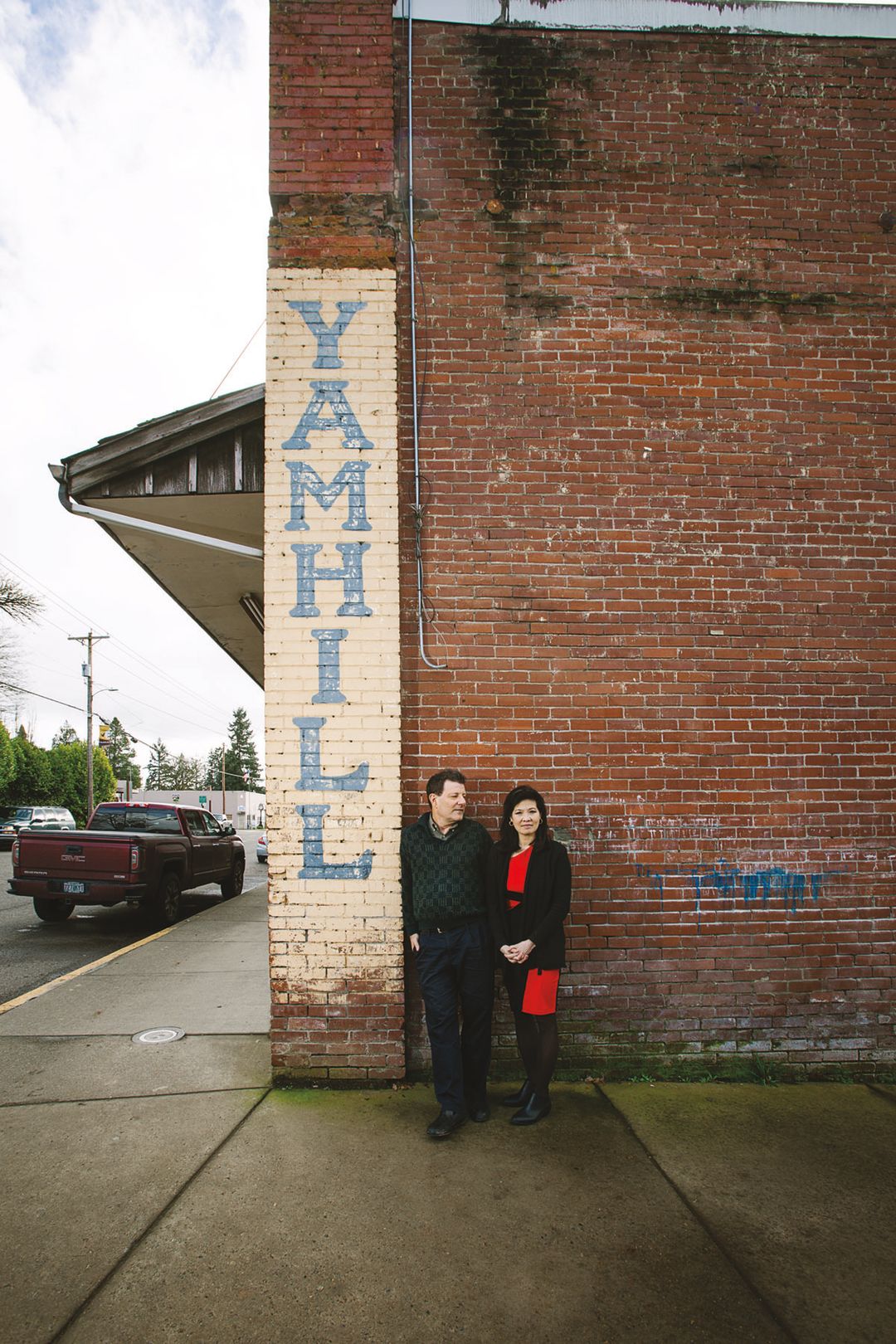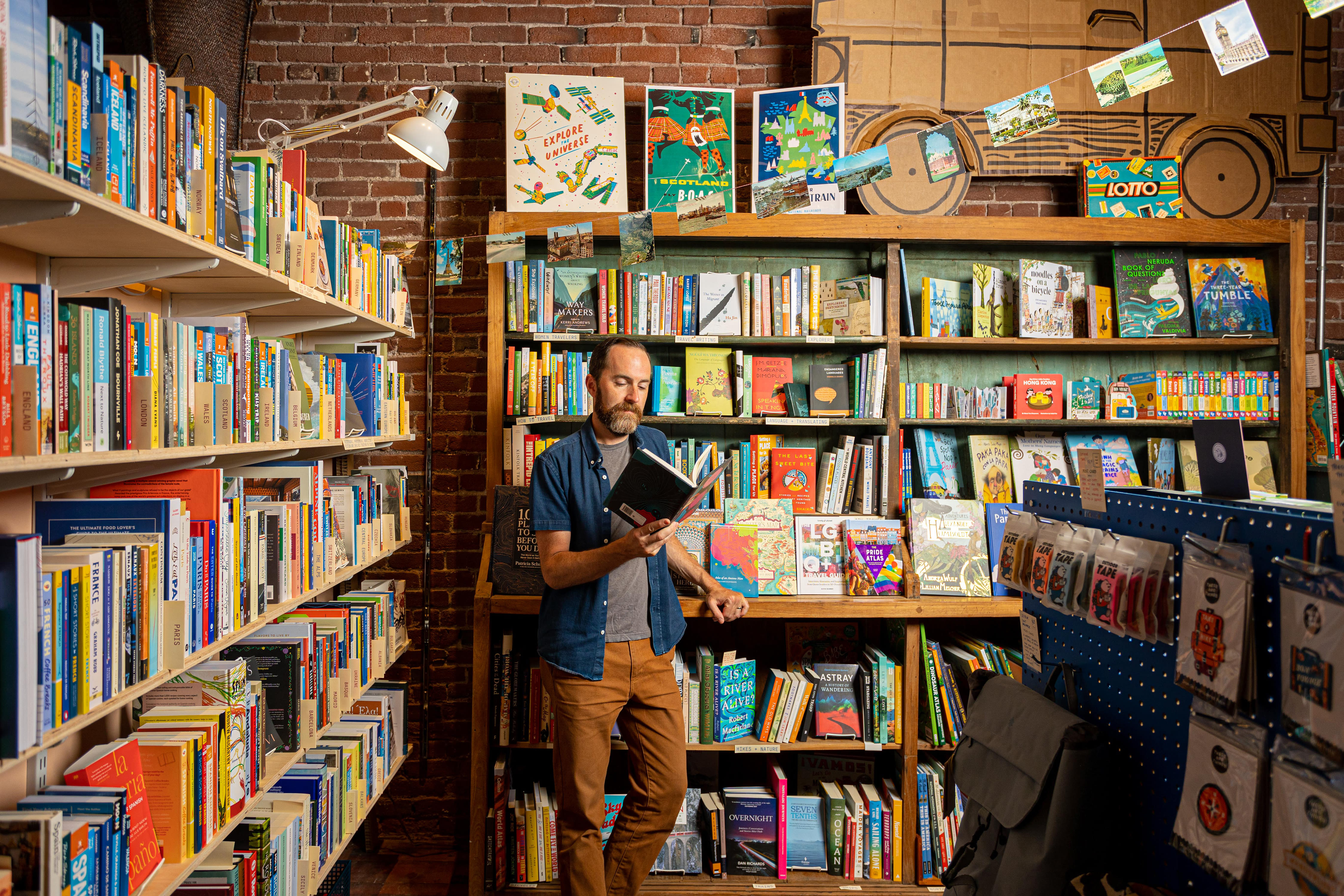A Love Letter, and a Wake-Up Call, for Yamhill County

Image: William Anthony
From his perch on the op-ed pages of the New York Times, and in the books he’s authored with wife and reporting partner Sheryl WuDunn, Pulitzer Prize winner Nick Kristof has chronicled some of the world’s bleakest corners, from rural China to Sudan. Their latest collaboration is different. Tightrope: Americans Reaching for Hope unfolds mainly in Yamhill, in the sections of the Willamette Valley that missed the wine industry boom. It’s where Kristof grew up and where his family is converting their pie cherry orchard to cider apples and pinot grapes, with an aim to hire local. The stories are those of Kristof’s old classmates and crushes, his peers, once full of potential, many now ravaged by drug and alcohol abuse. Public policy, the authors write, has failed here on nearly every level, from elementary schools eager to wash their hands of problem kids to an unfairly punitive judicial system.
Nick Kristof: When we interview people in a refugee camp, we have a certain armor when we hear emotional stories. This time we had no armor. We are talking to old friends about their struggles and their children’s struggles, and you don’t have any professional distance to protect you.
We worry a little bit that we are revealing Yamhill’s dirty laundry. I don’t want Yamhill to be perceived as this place where there are a bunch of folks cooking meth and dying early. We also worried that some of the people who we are deeply fond of, because we presented them warts and all, would be perceived by some readers in very harsh ways. And yet we didn’t want to just write about how gorgeous Yamhill is. The struggles are real. People talked to us partly because they thought it was important to explain the struggles of a place like that.
I think it was really important that I was a local yokel... both for getting people to confide their whole stories and for trusting us with some really embarrassing parts of their lives. And I think also that people in Yamhill understand when we write about some of the shortcomings that I love Yamhill as much as they do. This isn’t some outsider parachuting in. This is somebody who is part of the community, cares deeply about it, and is trying to air problems with the hope that they will be addressed.
The town of Yamhill has itself been more suspicious of [wineries] than Carlton has, next door. When I was growing up, Carlton was the poorer little sister. Then the wineries and tourism moved into Carlton, and today, Carlton is rather more prosperous. That’s evidence that the wine business really can lift a community and offer new jobs. At the end of the day, part of the problem is that the wine business brought in new jobs, but they often didn’t go to the people who might have worked at the old glove factory or at the steel mill in McMinnville. There were a lot of people that were left out. They were often socially isolated.
Sheryl WuDunn: Manufacturing jobs used to carry a lot of prestige with them as well as higher pay. People used to take pride in making something. Whereas I think that agricultural work is looked upon less favorably and has less stature. A lot of the jobs in the winemaking business, while [they] run the gamut... there are a lot of jobs for agricultural workers.
NK: We had always had orchards [when I was growing up], in particular cherry trees. Unfortunately, Americans aren’t eating enough cherry pie. We were raising Montmorency pie cherries. The buyer told us that they would no longer take our cherries. So then we were frantically searching for what else do we do. We might have planted hazelnuts, except Sheryl is allergic to hazelnuts. This was when we were also working on the book. We were really struck by the way there had been a collapse of jobs locally. The cherries didn’t support many jobs. They aren’t very labor intensive. We wondered whether there was something we could do that would support more jobs. So then we had the idea of cider apples and
pinot grapes.
SW: Which are both very labor intensive! There is an advantage and a disadvantage there. We are just starting. It takes a long time for these trees and the vines to gestate. It has been complicated. We do see the challenges people have when they try to hire local workers. We have to make ends meet—it’s not a charity, we’re trying to balance a lot of different things. We’ll see what happens when it comes to harvest.
NK: We have proved our incompetence at various points. Most notably when we put up this very expensive, impregnable deer fence and managed to lock deer inside the deer fence.




